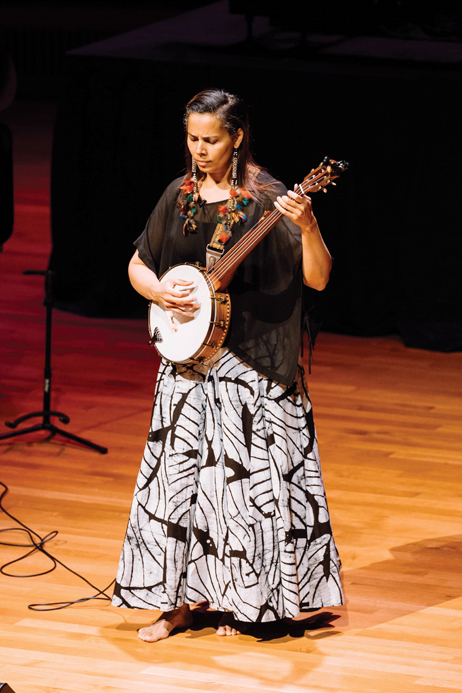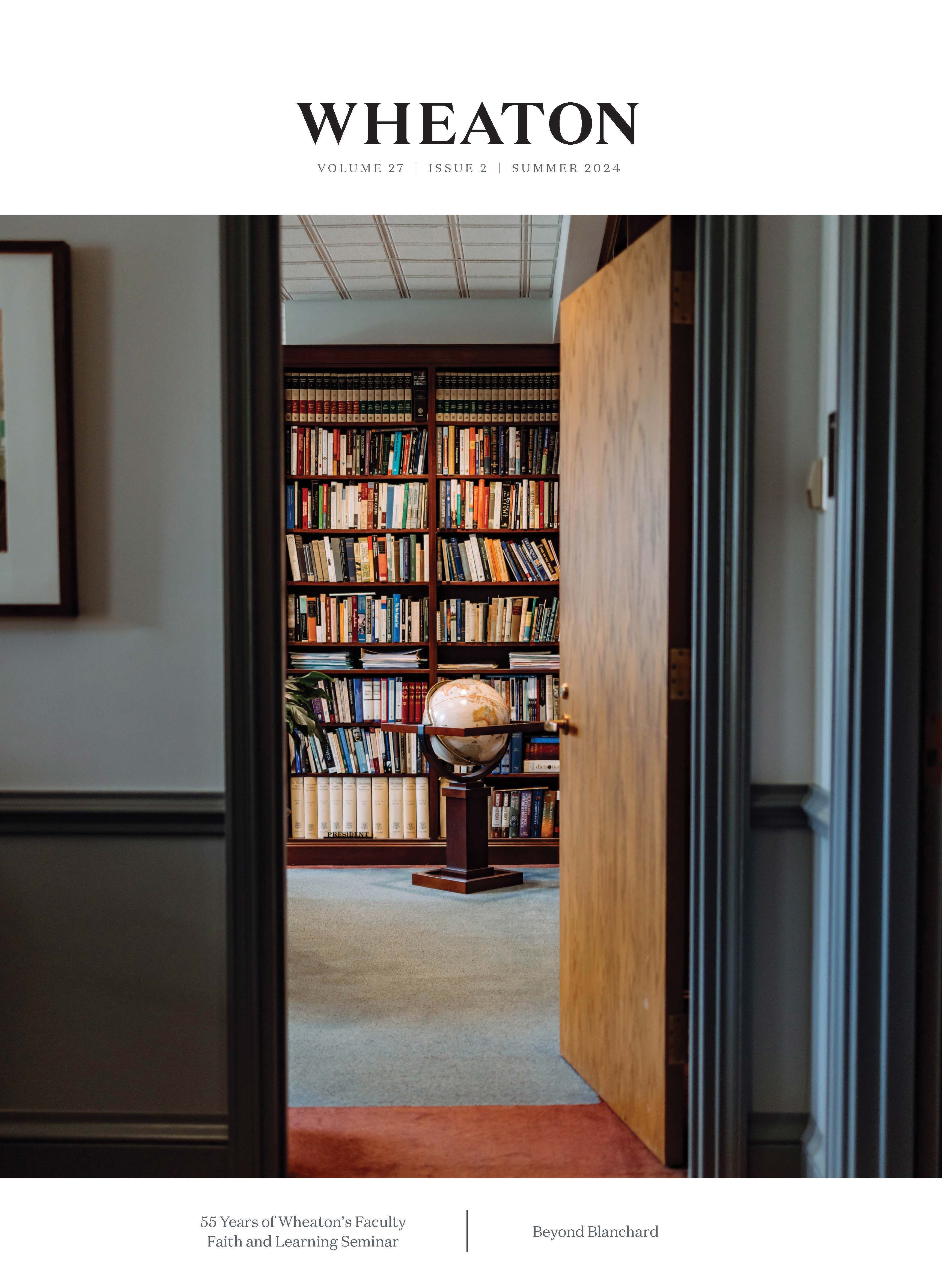Songs in Flight
The new song cycle from GRAMMY-nominated Professor of Music Dr. Shawn Okpebholo
Words: Delaney Young ’20
Photos: Kayla Smith

Pulitzer Prize–winning musician Rhiannon Giddens opens Songs in Flight, performed in the Armerding Concert Hall.
As a composer, Professor of Music (Composition, Music Theory) Dr. Shawn Okpebholo possesses a remarkable gift for framing heavy themes with delicacy and beauty. His approach to composition is distinct: complex and classically informed, but fresh and alive with spiritual, historical, and ethnomusicological intuition. This is particularly true of his recent composition Songs in Flight, which premiered at the Metropolitan Museum of Art in January and came to Wheaton’s campus this spring. It’s a song cycle—a collection of poetry set to music—inspired by Cornell’s “Freedom on the Move” archive, a database of over 3,000 advertisements from 17th–19th-century American newspapers for missing runaway slaves.
This project was conceived in partnership with Martha Guth of Sparks and Wiry Cries, but when Guth first pitched the idea to Okpebholo, he wasn’t sure he’d say yes. “I had to get back to her because I had just done several works that dealt with black pain and tragedies, and I wasn’t sure I could do a piece about slavery,” he said. Her request came on the heels of his release of GRAMMY®-nominated album Lord, How Come Me Here?, a breathtakingly beautiful yet somber collection of reimagined Negro spirituals.
Despite his hesitation, a voice from within convinced him to say yes to Guth’s proposition. “And I’m so glad,” he said. “This was one of the most rewarding artistic experiences of my life because it was so collaborative.” Indeed, the project’s collaborators are noteworthy, like the Pulitzer Prize–winning Rhiannon Giddens; internationally acclaimed artists Karen Slack, Reginald Mobley, Markel Reed, and Paul Sanchez; and renowned poet Tsitsi Jaji.
With Giddens crooning over a lightly picked banjo, the performance begins as a modest affair, until the piano floats in underneath Giddens’ deep vibrato with haunting, slow pulses of low-end chords. Together, Giddens’ soaring vocals and the piano’s dissonant march draw the audience in. The eschatological lyrics and bright chords of an old African American spiritual juxtapose with the eerie, dark urgency of Okpebholo’s melody and accompaniment. From the very first minute, Songs in Flight accomplishes what Okpebholo intended: It makes the abstract personal, and it reminds the listener that history is true.
“I hope listeners experience the profound impact that American slavery still has on our world today,” said Okpebholo. “One of the most powerful elements of this song cycle is that it humanizes people. These were real people who were enslaved, and we kind of just forget that as a society. They were made in the image of God.”
